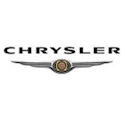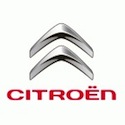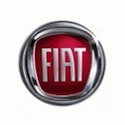Economical Driving
Did you know that by making just a few adjustments to your driving style and habits you could become an eco driver and also save your self some money on fuel.
Fuel is Expensive
Why not become an eco driver? I’m sure the fuel costs on your 7 Seater Car are bad enough without the extortionate increase of fuel costs adding to the problem. Today fuel is around £1.20 a litre for both petrol and diesel. Most 7 seater cars are less fuel efficient so you might want to consider adapting your driving style to squeeze as many miles out of the tank as you can. To read our article on the most frugal people carriers to help.
Correctly Inflated Tyres
Firstly make sure your tyres are inflated correctly. If you can’t suss out how to do this yourself I’m sure wherever you buy fuel from will have a handy assistant to help you to inflate your tyres correctly. Usually there’s a sign by the air pump which will list your vehicle and the correct tyre pressure. Remember to do all four tyres, especially after cold or very hot weather.

Carry Less in Your Vehicle
Carry less! Do you really need to have all that clutter? Be a minimalist car driver. Less weight in your car will improve the number of miles you will be able to get per gallon. If you have a roof rack that isn’t used, remove it. Even unused bike racks should be taken off. Remember less weight is more miles per gallon!
No Excessive Revving
Don’t over rev the engine. When you over rev an engine the number of co2 emissions increase and this subsequently increases the amount of fuel you use. On your next journey think about when and why you accelerate and also whether you actually need to accelerate at all. For example do you really need to overtake someone in front of you if it means that you’ll get there 1 minute quicker?
Do not Idle the Engine
Avoid idling your engine. If you are sat in your seven seater car, with it switched on, waiting for your child to come out of school, switch it off! Although most cars now have a stop start function which automatically stops the engine when it isn't in use. For example at traffic lights, short stops etc.
Stick to the Speed Limit
Lastly and most importantly stick to the speed limit! Did you know that if you drive at 70 miles per hour you use up to 30% more fuel than if you were to drive at 50 miles an hour! To think of this another way consider a journey of 25 miles. If you drove 25 miles it would cost £3.66 driving at 50 miles an hour and take 30 minutes, whereas if you did the same journey at 70mph it would cost £4.76 and take 21.5 minutes. Driving faster will cost an extra £1.10 per journey.
Money Saved
If you did this journey everyday, you could potentially save up to £400 a year! With the extra 3.5 minutes driving you could listen to the end of a podcast.
More Savings on Motorway Driving
Savings are even higher on a motorway. If you drive at the speed limit of 70 miles per hour instead of 85 miles an hour on a motorway you could save up to 40% on fuel. On a 300-mile journey you could potentially save approximately £20.
Driving at the speed limit is recommended for more than just saving money – it saves lives too. Driving at 20mph instead of 30mph can save a childs life if there is a collision. There is a 1% chance of mortality at 20mph and a 7% chance if hit at 30mph. On the motorway the reason (so I'm told) for the 70mph speed limit is also to save lives. I have queried why you can drive over 80mph (in KM 110km to 130km per hour) when driving in france and I was told that it is because those roads (french motorways) are far less busy than our motorways. European Driving has different rules to driving in the United Kingdom.
You May Also Be Interested In
- The UK Manufacturers of People Carriers
- Larger Family Cars
- Safer Snow Motoring - Be Careful in that Snow!
- Revolution in Green Motoring - All Electric Leaf and Prius Plus
- Four Wheel Drive Options for Family Motoring
- A List of all 7-Seater Cars
- The UK Manufacturers of People Carriers
- LA Car Rental Goes Hybrid
- Tesla Model S Electric Vehicle
- Most Frugal People Carriers

 Audi 7-Seater
Audi 7-Seater BMW 7‐Seaters
BMW 7‐Seaters Chevrolet MPVs
Chevrolet MPVs Chrysler MPVs
Chrysler MPVs Citroen MPVs
Citroen MPVs Fiat 7-Seaters
Fiat 7-Seaters Ford 7-Seaters
Ford 7-Seaters Honda MPVs
Honda MPVs Hyundai MPVs
Hyundai MPVs Jeep 7-Seaters
Jeep 7-Seaters Kia 7-Seaters
Kia 7-Seaters Land Rover
Land Rover Mazda MPVs
Mazda MPVs Mercedes MPVs
Mercedes MPVs Mitsubishi
Mitsubishi Nissan
Nissan  Peugeot
Peugeot  Renault
Renault  SEAT 7‐Seaters
SEAT 7‐Seaters Ssangyong
Ssangyong  Toyota
Toyota  Vauxhall MPVs
Vauxhall MPVs Volkswagen
Volkswagen Volvo MPV
Volvo MPV All Manufacturers
All Manufacturers